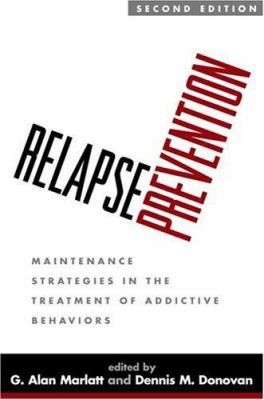
Book
|
Relapse prevention : maintenance strategies in the treatment of addictive behaviors
-- Maintenance strategies in the treatment of addictive behaviors
Copies
1 Total copies, 1 Copies are in,
0 Copies are out.
Title
Relapse prevention : maintenance strategies in the treatment of addictive behaviors -- Maintenance strategies in the treatment of addictive behaviors
Call No
616.86 06
Edition
Second edition.
Subjects
Language
English
Published
New York : Guilford Press, [2005].
Publication Desc
xiv, 416 pages : illustrations ;
ISBN
1593851766
(alk. paper)
LCCN
2005000834
Dimensions
24 cm.









